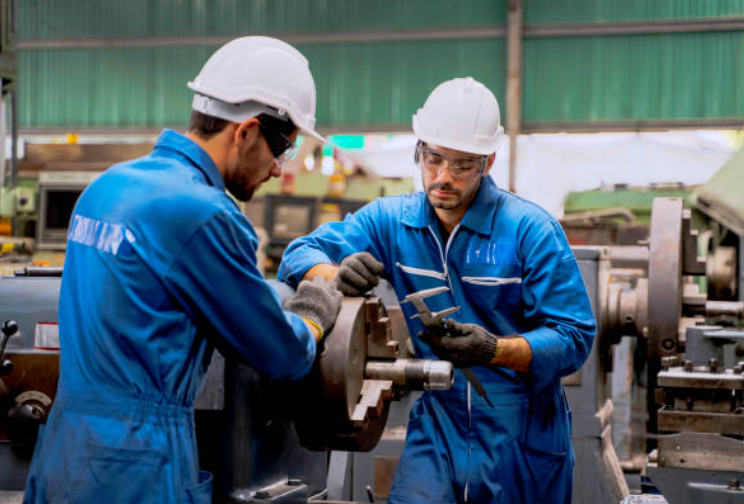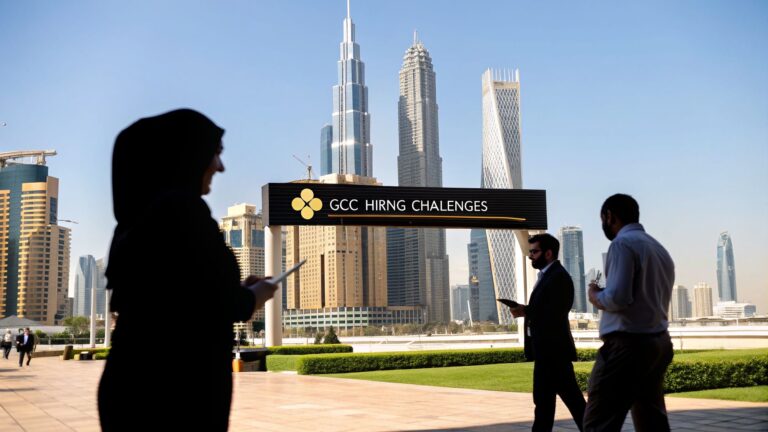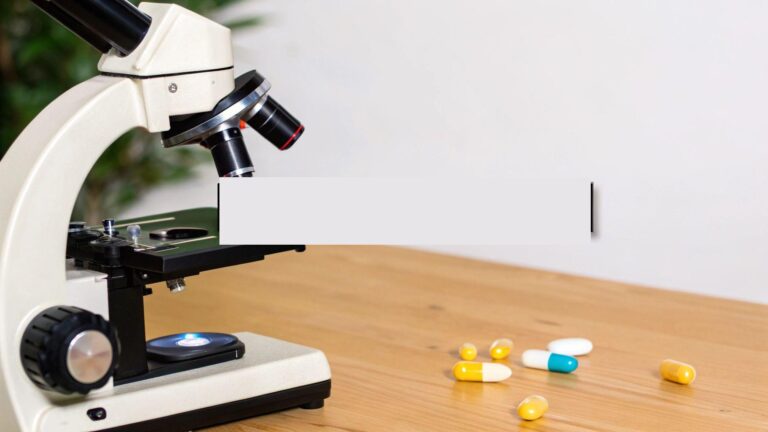Production engineering plays a key role in industries like manufacturing, automotive, electronics, and fast-moving consumer goods (FMCG). In today’s fast-paced world, where companies are always looking for better quality and faster production, production engineers have become more important than ever.
They help businesses make products in the smartest, safest, and most cost-effective way. Their job is to design better processes, fix problems quickly, reduce waste, and make sure everything runs smoothly on the factory floor. Simply put, production engineers help companies save time, save money, and keep customers happy by improving the way things are made.
Production engineers also make sure that quality standards are met, machines are working properly, and safety rules are always followed. They work closely with other teams, plan production schedules, and constantly look for ways to make improvements. They are also expected to stay up to date with the latest technology and production methods to keep their factories efficient and competitive.
This blog is a complete guide to help you understand:
- What production engineering is
- Who production engineers are and what they do
- Their daily roles and responsibilities
- The key skills needed to become a production engineer
- How to build a strong production engineer resume
- A ready-to-use job description template
- The difference between a production engineer and a product engineer
If you are thinking about starting a career in production engineering or are looking to hire a top-notch production engineer, this blog will give you all the basic and useful information you need.
What is Production Engineering?
Production engineering is all about finding the best way to make products. It focuses on planning, improving, and managing the process of turning raw materials into finished goods in the most efficient, cost-effective, and high-quality way possible.
Think of it like this:
When a company wants to make something like cars, phones, medicines, or packaged foods, they need a proper system to make sure everything is made correctly, quickly, safely, and without wasting time or materials. Production engineers are the people who design and improve these systems.
What Does Production Engineering Aim to Do?
Here are some of the main goals of production engineering, explained simply:
- Making Processes Faster and Smarter: Production engineers plan how work should be done so that products can be made quickly without mistakes.
- Saving Money: They look for ways to use fewer materials, reduce waste, and save energy, which helps companies lower their costs.
- Keeping Quality High: They make sure the final products are good, safe, and meet the standards expected by customers and industries.
- Planning Production Well: They help schedule and organize resources like workers, machines, and materials so that everything is ready when it’s needed, and products are delivered on time.
Where is Production Engineering Used?
Production engineering is very important in industries like:
- Automotive – Making cars and vehicle parts
- Electronics – Producing mobile phones, computers, and gadgets
- Pharmaceuticals – Manufacturing medicines and health products
- FMCG – Producing packaged foods, personal care items, and everyday products
In these industries, working efficiently and maintaining good quality are very important. That’s why production engineers are in high demand, they help companies achieve these goals.
Check out this blog on Desktop Support Engineer roles and responsibilities.
Who are Production Engineers?
A production engineer is a person who helps companies make products in the best, fastest, and most cost-effective way. Their main job is to watch over how things are made, solve problems on the production floor, and make sure that products meet good quality standards.

You can think of them as the link between different teams like design, production, and quality control, making sure that everyone works together smoothly to produce great products on time.
Production engineers play a big role in helping companies succeed. Here’s why they are valuable:
- They Optimize Resources: They help make the best use of materials, machines, and workers to avoid waste and save money.
- They Improve Productivity: By improving processes, they help companies make more products in less time.
- They Drive Profitability: Their smart solutions and process improvements help reduce costs and increase company profits.
Let’s explore the roles and responsibilities of production engineers in detail below.
Production Engineer Roles and Responsibilities
A production engineer has many important tasks to make sure that the process of making products runs smoothly, on time, and without problems. They plan, supervise, and improve the way things are made in a factory or production unit. Let’s break down their main responsibilities in a simple way:
Planning and Monitoring Production Schedules
Production engineers help create production plans that show what needs to be made, when it should be made, and what resources (like machines, people, and materials) are needed.
For example: If a company needs to make 1,000 mobile phones in a week, the production engineer will plan the steps and timing to make sure the target is met.
Making Manufacturing Processes Better
They look for smart ways to make products faster and with less waste. This could mean arranging machines better, using better tools, or changing the steps to save time and money.
For example: If a machine is taking too long to complete a task, the production engineer finds ways to make it work faster without losing quality.
Checking Product Quality and Following Rules
Production engineers make sure that the products being made are of good quality and follow the rules set by the company and the industry. They regularly check products and machines to keep everything safe and up to standard.
For example: Making sure that a food product is safely packaged and meets health guidelines.
Looking After Machines and Equipment
They plan regular check-ups and maintenance for machines to prevent sudden breakdowns. Keeping machines in good condition helps the company avoid delays and save money.
For example: Scheduling weekly cleaning and repair of factory machines to keep them running smoothly.
Studying Production Data
Production engineers look at reports and numbers from the factory to find out where work is slowing down or where mistakes are happening. They use this information to make improvements.
For example: If one step in the process is always late, they will figure out why and fix it.
Working with Other Teams
They regularly talk and work with other teams like research, design, quality control, and supply chain to make sure everyone is working towards the same goal.
For example: Working with the purchasing team to ensure that materials arrive on time.
Additional Responsibilities
- Using Automation: Some production engineers help bring in new machines or robots to make the work faster and easier.
- Training Staff: They may teach workers how to use new machines or follow new processes safely.
- Managing Budgets: In some companies, they also keep track of how much money is being spent in the production area and find ways to save costs.
Production Engineer Resume Tips
If you want to stand out in the competitive field of production engineering, your resume needs to clearly show your skills, experience, and achievements. A well-written resume can help hiring managers quickly see that you are the right fit for the job.
Here are some useful tips to help you build a strong production engineer resume:
1. Highlight Relevant Work Experience
When listing your work experience, focus on jobs related to manufacturing, production planning, process optimization, quality control, or equipment maintenance. Don’t just list your responsibilities, show what you achieved.
For example:
– “Reduced production downtime by 15% through process improvements.”
– “Improved product quality by introducing new inspection procedures.”
Using numbers and results shows that you made a real difference in your previous jobs.
2. Showcase Key Technical Skills
Production engineers need strong technical knowledge. On your resume, clearly mention skills like:
- Process optimization
- Production planning
- Quality assurance
- Lean manufacturing
- CAD software (such as AutoCAD or SolidWorks)
- ERP systems (like SAP)
Make sure you include keywords like these, as they help your resume get noticed by both recruiters and resume-scanning software.
3. Add Relevant Certifications
Certifications show that you have extra training and are serious about your career. If you have any of these certifications, make sure to list them:
- Lean Six Sigma (Green Belt or Black Belt)
- Project Management Professional (PMP)
- Certified Manufacturing Engineer (CMfgE)
These certifications can give you an advantage in the production engineering job market.
4. Emphasize Achievements Over Duties
Instead of only writing what your job was, focus on what you achieved. Show how you helped the company save money, improve efficiency, or complete important projects.
For example:
– “Led a cost-saving project that reduced raw material waste by 10%.”
– “Implemented a new production process that increased output by 20%.”
This makes your production engineer resume stronger and more results-driven.
5. Use the Right Resume Keywords
Hiring managers often search for resumes using specific keywords. Some important keywords for production engineer resumes include:
- Production planning
- Process optimization
- Quality assurance
- Lean manufacturing
- Equipment maintenance
- Cost reduction
- Troubleshooting
- Continuous improvement
Including these keywords increases your chances of getting noticed and selected.
Pro Tip: Tailor Your Resume for Each Job
Don’t send the same resume to every company. Read the job description carefully and update your resume to highlight the production engineer skills and experiences that match what the employer is looking for. This makes your application more relevant and increases your chances of getting called for an interview.
Production Engineer Job Description
A Production Engineer Job Description Template is a helpful tool for both hiring managers and job seekers. For companies, this template makes it easier to clearly list the skills, qualifications, and responsibilities they expect from a production engineer. It helps attract the right candidates who understand what the role requires.
For candidates, a job description gives a clear idea of what the company is looking for. It helps them prepare their resume, match their skills to the job, and get ready for interviews with the right expectations.
This ready-to-use template can be customized to suit different industries like automotive, electronics, pharmaceuticals, and FMCG.
Here’s a production engineer job description template-
Job Title: Production Engineer
Location: [Insert Location]
Department: Production / Manufacturing
Reports To: Production Manager / Plant Head
Job Summary:
We are looking for a Production Engineer who will be responsible for planning, supervising, and improving our production processes. The ideal candidate will ensure that products are made efficiently, safely, on time, and meet quality standards. The role also involves problem-solving, process improvement, and working closely with cross-functional teams.
Key Responsibilities:
- Plan and monitor daily production schedules to meet delivery targets.
- Supervise manufacturing processes to ensure smooth and timely operations.
- Identify and fix production issues to reduce downtime.
- Ensure product quality and compliance with industry standards and safety guidelines.
- Collaborate with teams such as design, procurement, and quality control to improve production efficiency.
- Analyze production data to identify areas for improvement and cost savings.
- Schedule equipment maintenance to prevent breakdowns and extend machinery life.
- Assist in implementing new technologies, processes, or automation systems.
- Train staff on new equipment or updated production processes.
- Manage production budgets, if required.
Required Qualifications:
- Bachelor’s degree in Production Engineering, Mechanical Engineering, Industrial Engineering, or a related field.
- 0-3 years of relevant experience (freshers may also apply, depending on the company).
- Basic knowledge of production planning, quality control, and equipment maintenance.
- Familiarity with manufacturing software, ERP systems, or CAD tools is a plus.
Key Skills:
- Process optimization
- Problem-solving and troubleshooting
- Production planning
- Quality assurance
- Strong communication and teamwork
- Basic knowledge of Lean and Six Sigma principles
- Time management and attention to detail
Work Environment:
- Factory or production floor
- May involve shift work depending on company schedules
- Requires the use of safety equipment and adherence to safety protocols
Discover our Job Description category to find out more about to explore various job description templates and roles and responsibilities of popular careers in 2025.
Production Engineer Skills
To become a successful production engineer, you need a combination of technical skills and soft skills. Technical skills help you understand and improve the manufacturing process, while soft skills help you work well with other teams and solve problems effectively. Mastering these skills will not only help you succeed in your role but also make your resume stand out when applying for production engineer jobs.
Below is a detailed explanation of the most important production engineer skills you should know.

Technical Skills for Production Engineers
1. Process Engineering
Process engineering is the skill of designing, setting up, and improving the steps involved in making a product. A good production engineer knows how to create workflows that are simple, fast, and cost-effective.
For example: Planning the sequence of steps to assemble a car engine in the shortest time without compromising quality.
2. CAD Software (AutoCAD, SolidWorks)
Production engineers often use Computer-Aided Design (CAD) software to create layouts, design machinery setups, or visualize production lines. Knowing tools like AutoCAD and SolidWorks is helpful when working with design and manufacturing teams.
3. Quality Management (ISO, Six Sigma)
Understanding quality management systems is a must for production engineers. This includes knowing how to apply standards like ISO 9001 or using Six Sigma methods to reduce errors and improve product quality.
For example: Ensuring that a food product meets safety and quality regulations.
4. Lean Manufacturing
Lean manufacturing is a popular method used to reduce waste, save time, and make production more efficient. Production engineers who know lean principles can help companies lower costs and produce better results.
Soft Skills for Production Engineers
1. Problem-Solving
Factories and production lines often face unexpected problems like machine breakdowns or delays. A good production engineer can quickly find solutions to fix these problems and keep things running.
2. Teamwork
Production engineers rarely work alone. They need to collaborate with designers, machine operators, quality teams, and managers. Working well with different teams helps make sure production runs smoothly.
3. Communication Skills
Good communication is essential. Production engineers must explain technical processes clearly to team members, factory workers, and senior managers. They also need to report problems and suggest improvements in a simple, understandable way.
4. Attention to Detail
Small mistakes in the production process can lead to big problems. Production engineers must be careful and pay close attention to every step, especially when checking product quality or setting up machines.
Check out this blog on MIS Executive Roles and Responsibilities.
Difference Between Production Engineer and Product Engineer
Many people often confuse the roles of production engineers and product engineers because both work in manufacturing and engineering teams. However, their focus and responsibilities are quite different.
In simple words:
- Production engineers focus on how the product is made. They make sure the manufacturing process is smooth, cost-effective, and efficient.
- Product engineers focus on what is being made. They design and develop the product itself to make sure it works well and meets customer needs.
Let’s break down the differences clearly:
| Aspect | Production Engineer | Product Engineer |
| Focus | Improving the manufacturing process, reducing costs, and making production faster and more efficient. | Designing, developing, and improving the product itself. |
| Responsibilities | Planning production schedules, ensuring quality, fixing machines, and keeping processes smooth. | Creating product designs, testing prototypes, and improving product performance. |
| Skillset | Process planning, lean manufacturing, equipment maintenance, and quality control. | Product design, CAD modeling, material selection, and product testing. |
| Collaboration | Works closely with manufacturing, production, and supply chain teams. | Works closely with research and development (R&D), and product design teams. |
Key Takeaway:
- Production engineers make sure the product is made quickly, safely, and cost-effectively.
- Product engineers make sure the product is well-designed, works properly, and meets customer needs.
Both roles are important, but they focus on different stages of the product’s life cycle.
Wrapping Up
Production engineers are the backbone of modern manufacturing. They play a big role in helping companies make high-quality products quickly, safely, and at the right cost. Without them, factories would face delays, waste more materials, and struggle to meet customer demands.
As industries like automotive, electronics, pharmaceuticals, and FMCG continue to grow, the need for skilled production engineers is becoming even more important. Companies are looking for professionals who can improve their production systems, solve problems on the factory floor, and find smarter ways to make products.
If you are thinking about becoming a production engineer, this is the right time to build your career. You should focus on:
- Learning technical skills like process planning, quality management, and lean manufacturing.
- Gaining certifications such as Lean Six Sigma to strengthen your resume.
- Improving soft skills like problem-solving, communication, and teamwork to work well with others.
Production engineering is a rewarding career where you can make a real difference in how things are made and how businesses grow. By developing the right skills and staying updated with new technologies, you can build a successful and exciting future in this field.
Ready to Hire the Best Production Engineers or Advance Your Career?
For Employers: Taggd’s AI-powered recruitment solutions streamline your hiring process, matching you with skilled accountants who align with your organization’s goals and culture. Find the perfect fit faster with our data-driven approach.
For Job Seekers: Discover 1000+ job opportunities with India’s leading companies through Taggd’s smart career platform. Join our Career Circles and get matched to roles that elevate your skills and ambitions.
Start your journey today with Taggd!









